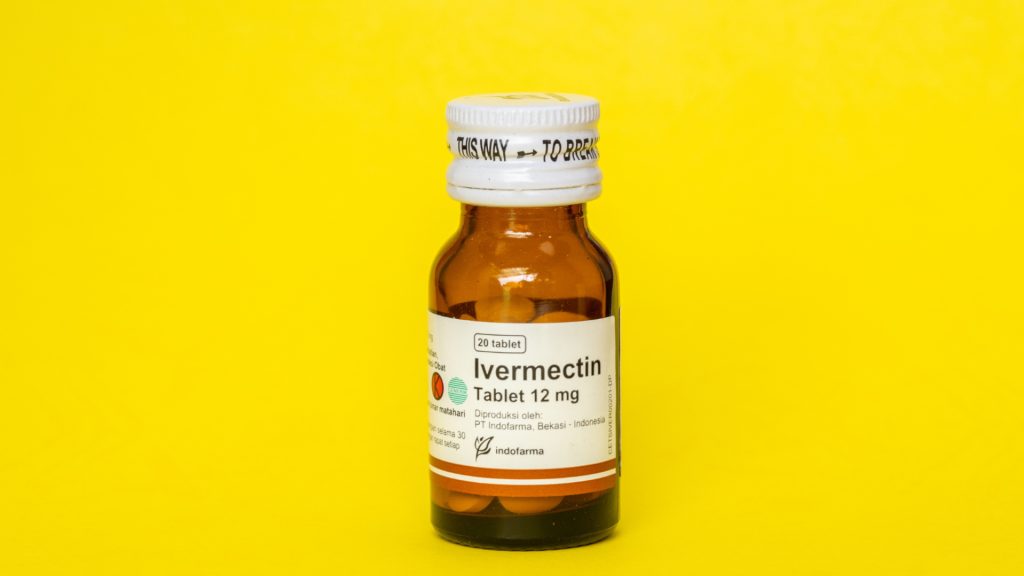The Food and Drug Administration (FDA) recently agreed to remove a series of social media posts ridiculing anyone who used Ivermectin to treat COVID-19. The administration was being sued by three Texas doctors – who accused the FDA of overstepping their boundaries with their anti-Ivermectin campaign in 2021. Here’s what you need to know!
2021: FDA Ridicules Those Who Take Ivermectin For COVID
By 2021, the COVID-19 pandemic was in full bloom and many people – including Joe Rogan and Aaron Rodgers – had promoted Ivermectin as a potential treatment for COVID. In an effort to curb that appeal, the FDA launched a campaign to delegitimize the treatment.

“You are not a horse. You are not a cow. Seriously, y’all. Stop it,” the FDA wrote on social media – highlighting the drug’s use in deworming animals, but ignoring its use in humans. “Hold your horses, y’all. Ivermectin may be trending, but it still isn’t authorized or approved to treat COVID-19,” they wrote in a separate post.
Aaron Rodgers Admits To Using Ivermectin For COVID
In November 2021, Aaron Rodgers took to The Pat McAfee Show to confirm that he was, in fact, unvaccinated – further adding that he takes Ivermectin to treat COVID because he’s allergic to COVID-19 vaccines.

“Look, I’m not, you know, some sort of anti-vax flat-earther. I am somebody who is a critical thinker,” Rodgers said. “I consulted with a now good friend of mine Joe Rogan, after he got Covid, and I’ve been doing a lot of stuff that he recommended.”
Joe Rogan And Dr. Sanjay Gupta Talk About Ivermectin
Speaking of Joe Rogan, he was one of the first Americans to popularize the use of Ivermectin for COVID. He was diagnosed with COVID in September 2021 and admitted to taking Z-Pak, prednisolone and ivermectin – at a time when the FDA was advising against it.

News outlets, such as CNN, ridiculed Rogan for promoting Ivermectin, so he welcomed Dr. Sanjay Gupta (CNN’s chief medical respondent) onto his podcast the following month and asked him if he needed to sue CNN for saying he was taking a horse dewormer. Gupta apologized for his outlet’s coverage and admitted they were in the wrong.
FDA Publishes Article Advising Against Ivermectin Use For COVID
The saga continued in December 2021 when the FDA continued their anti-Ivermectin campaign with an article titled, “Why You Should Not Use Ivermectin to Treat or Prevent COVID-19.”

“Ivermectin is approved for human use to treat infections caused by some parasitic worms and head lice and skin conditions like rosacea,” they wrote – adding that it ‘has not authorized or approved ivermectin for use in preventing or treating COVID-19 in humans or animals.’
2022: Three Texas Doctors File Lawsuit Against FDA
In 2022, a group of three Texas doctors – Drs. Robert L. Apter, Mary Talley Bowden and Paul E. Marik – filed a lawsuit against the FDA. They claimed that their reputations were harmed as a result of the FDA’s anti-Ivermectin campaign.

All three doctors had promoted the use of Ivermectin, but Bowden ended up losing his admitting privileges at the hospital she worked at, and Marik lost his positions at a medical school and at a hospital he worked at.
2023: Appeals Court Revives Case After Being Dismissed
The case was dismissed in December 2022 after a judge ruled that the FDA had ‘sovereign immunity,’ but a federal appeals court revived the case in September 2023 on the basis that the FDA wasn’t a physician, so it didn’t have authority to do/say what it did.

“FDA is not a physician. It has authority to inform, announce, and apprise—but not to endorse, denounce, or advise,” the judge wrote. “The Doctors have plausibly alleged that FDA’s Posts fell on the wrong side of the line between telling about and telling to.”
2024: FDA Agrees To Remove Social Media Posts
That brings us to present day. On March 21, the FDA settled the lawsuit with the three doctors. As part of the settlement, the FDA agreed to ‘delete and never republish’ the social media posts from 2021, but they stopped short of admitting they were wrong.

“The agency has chosen to resolve this lawsuit rather than continuing to litigate over statements that are between two and nearly four years old,” they wrote – adding that the organization ‘disagrees with the plaintiff’s allegation that the agency exceeded its authority in issuing the statements challenged in the lawsuit.’
What Is Ivermectin?
According to the American Medical Association (AMA), Ivermectin is an ‘anti-parasitic drug approved in humans for treatment of certain tropical diseases.’ It’s commonly used to treat parasitic worms, rosacea, and head lice.

Aside from humans, Ivermectin is widely regarded as one of the most prominent medications for animals. It’s primarily used to prevent heartworm disease and treat certain internal and external parasites. The drug dates all the way back to the early 1970s – let’s take a look at its history!
1970s: Satoshi Ōmura Discovers Ivermectin
Satoshi Ōmura is a former microbiologist bioorganic chemist at Tokyo’s Kitasato Institute. He was hunting for new sources of pharmaceuticals in the late-1960s and early-1970s when he came across a strain of Streptomyces avermitilis from soil near a golf course in Japan.

The bacteria was sent to Merck Research Labs, a team led by parasitology specialist William C. Campbell, where it was tested as a potential treatment for parasitic worms. They originally called the compound ‘avermectin’ before changing it to ‘ivermectin.’
1981: Ivermectin Commercialized For Veterinary Use
Merck Research Labs continued their tests and found that ‘the mixture was 25 times more potent than existing treatments for parasitic worms.’ It was also found to be effective against infestations by mites, ticks and botfly parasites.

As a result of their findings, Merck commercialized ivermectin as a veterinary treatment in 1981. Anyone who has a dog has likely come across this type of medicine – commonly marketed as ‘Heartgard.’ Other brand names include Iverheart Plus® and Tri-Heart® Plus.
1987: Ivermectin Approved For Human Use
In the early 1980s, Merck started working with the World Health Organization (WHO) to see if Ivermectin had a potential to treat river blindness – a parasitic disease that’s transmitted to humans through infected blackflies bites.

“The results with single doses of the pill proved the effectiveness of the drug against river blindness, and ivermectin was approved for human use in 1987 under the name Mectizan®,” the American Chemical Society writes on their website.
2015: Discoverers Awarded Nobel Prize
In 2015, William Campbell and Satoshi Ōmura were awarded the Nobel Prize in Physiology or Medicine for their efforts in developing, testing, and modifying ivermectin over the past 40 years.

This is one of the biggest problems people had with the FDA’s campaign against ivermectin – they were completely ignoring the fact that the drug was effective in human trials for a variety of conditions. They treated it like it was just a medication for animals.
2016: Designated As A National Historic Chemical Landmark
In 2016, the American Chemical Society continued to praise the discovery of ivermectin – officially designating it as a National Historic Chemical Landmark.

“This discovery resulted from an international collaboration that screened hundreds of natural products to identify a promising lead compound. Merck scientists synthesized thousands of analogs of this lead and tested them,” they wrote of the decision at the time.






